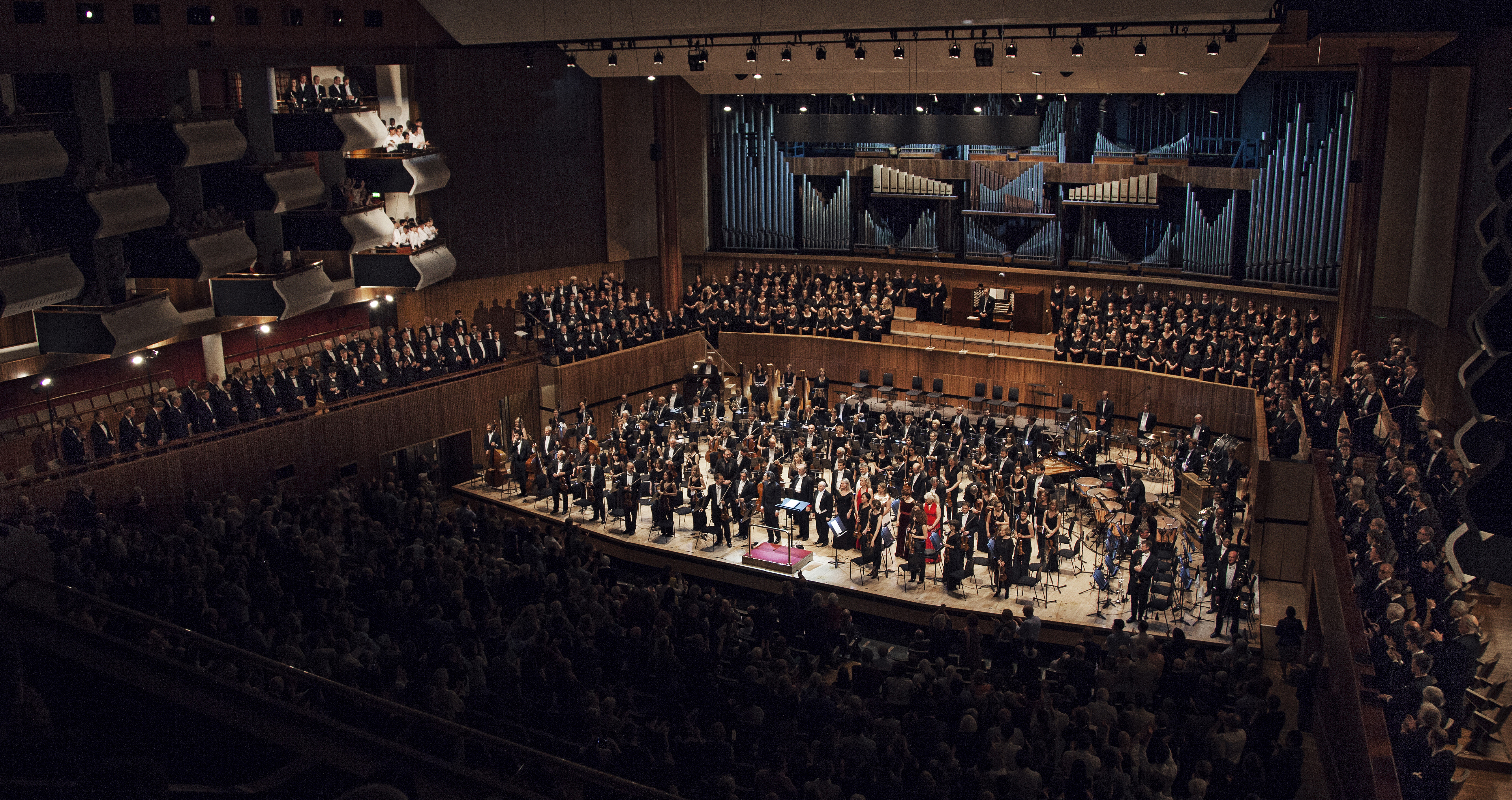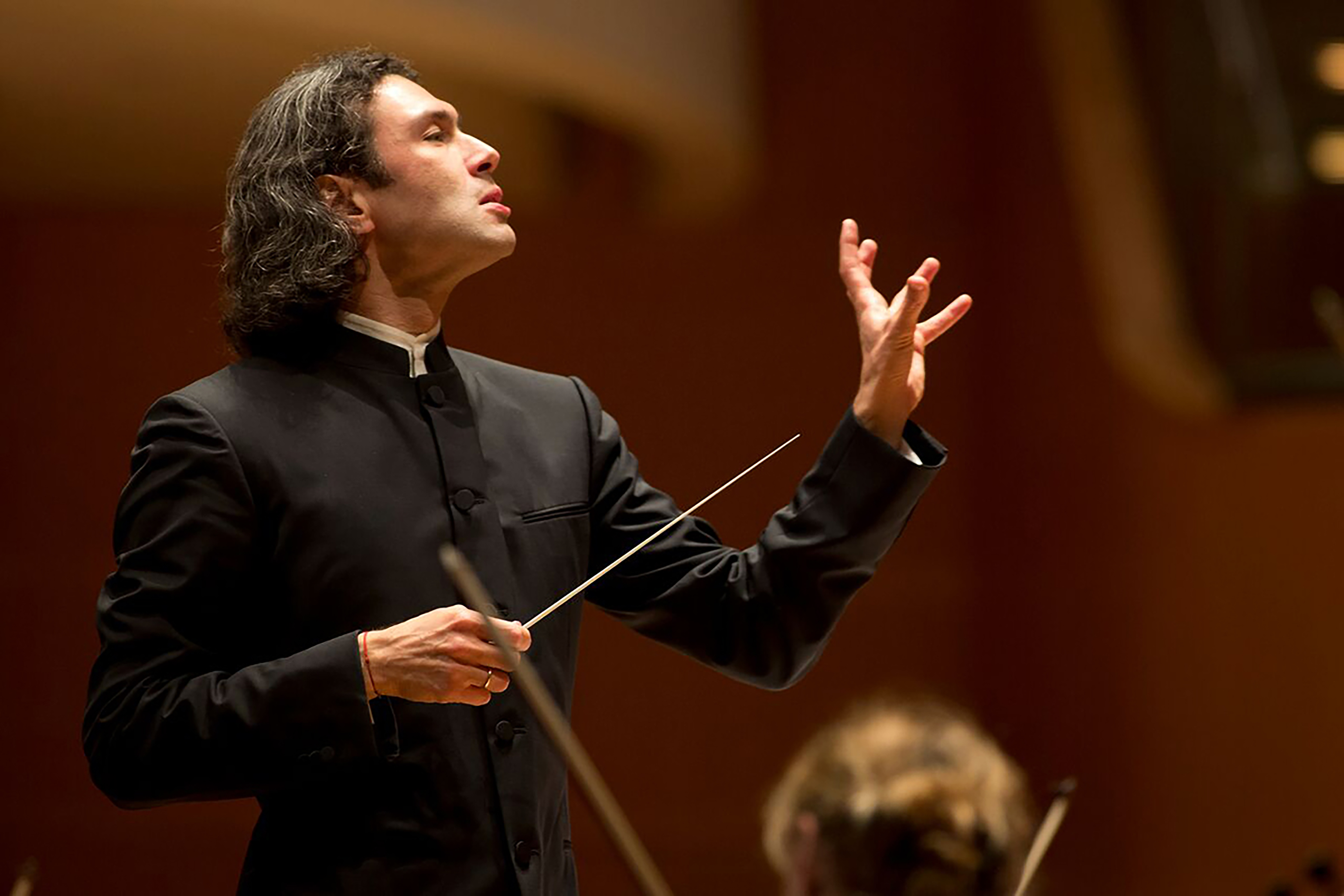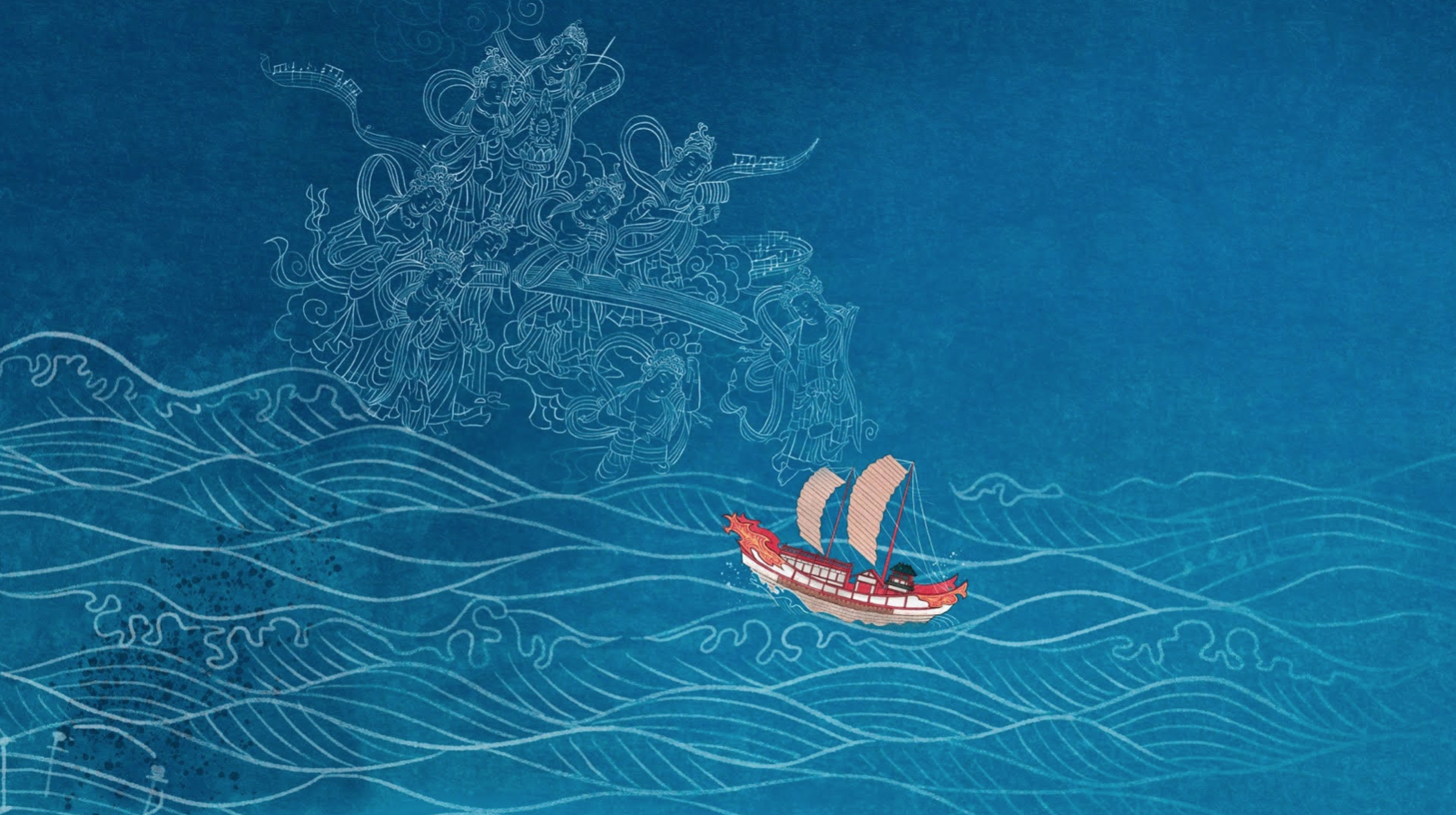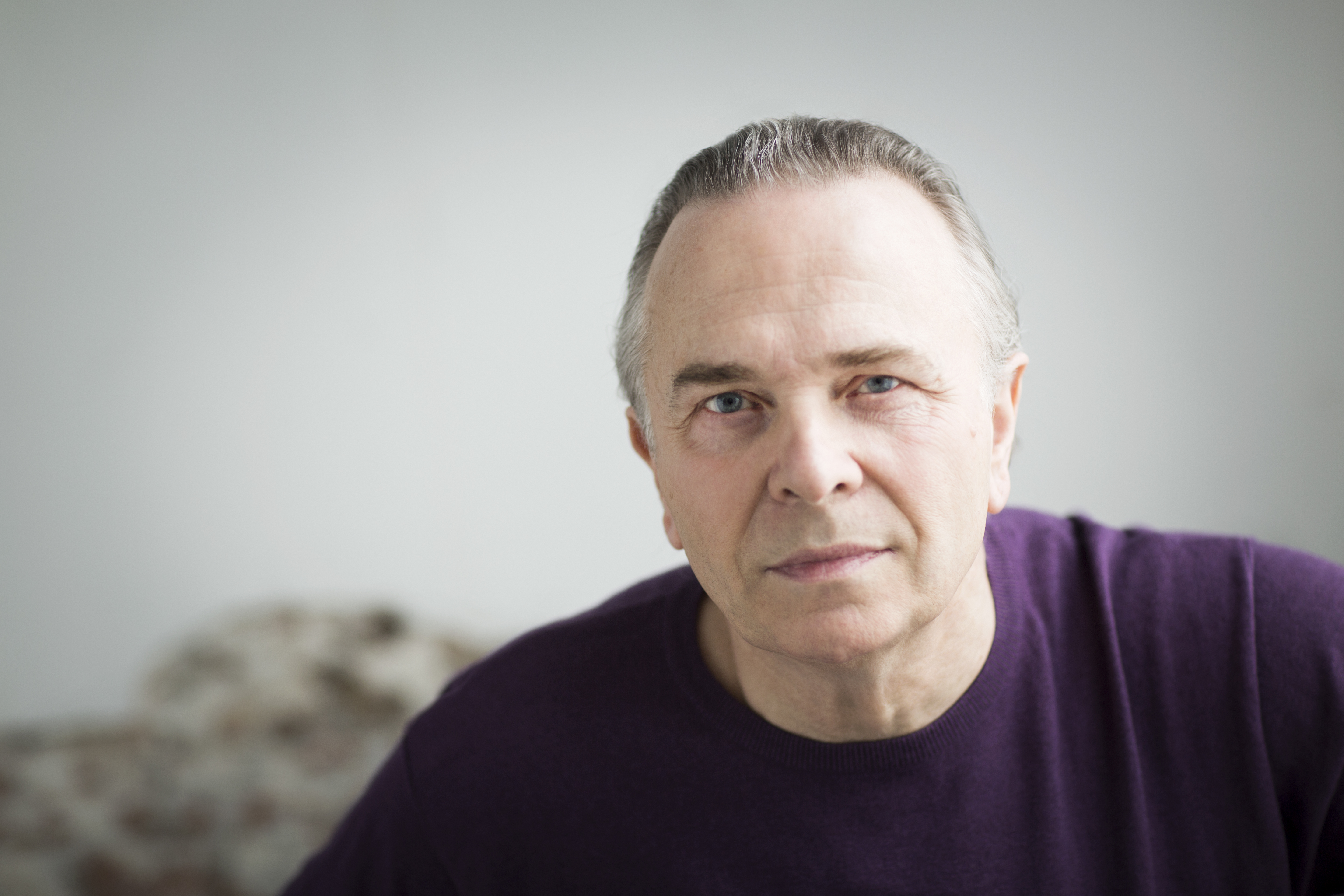As Vladimir Jurowski finally brings his critically acclaimed LPO Ring Cycle to its conclusion, the Choir is thrilled to be joining the orchestra and an outstanding international cast in a drama of star-crossed passion and ultimate evil; of treachery, courage and a love more powerful than the end of the world. From his music room in Berlin, Vladimir told us how excited he is to finally be directing this epic finale, how things have changed since he performed Siegfried in 2020 and the eternal relevance of the Ring Cycle stories. He also shared fond memories of working with the LPC over the last 20 years.
Why Wagner’s Ring Cycle?
I can’t wait for this performance, I’ve always wanted to direct The Ring Cycle; I’ve been careful with my repertoire and I’ve always kept this for later as it’s such a huge piece. Der Ring des Nibelungen is a timeless and ever present opera that summarises the entire human experience on earth – as much as Shakespeare or the Greek tragedies of Sophocles and Euripides – and now we come to the final act. It’s one of the pieces without which the human race wouldn’t have made its mark on its own history, so I’ve always felt an incredible awe when approaching it.

I would have been happier if we could have realised it as we thought of it in the first place, with Götterdämmerung being performed in January 2021 followed by the whole cycle being done afterwards on four consecutive days, maybe even twice. As we all know, that wasn’t possible but I’m very glad we’re doing it now. It will be really interesting to see what has happened to The Ring inside us in the meantime. It’s not music you can easily forget and I’ve spent the last three years preparing and studying it for this performance, I’m sure it’s also continued working subliminally in the orchestra.
It will be very interesting to work on it with the LPO now as they’ve done the other three acts in another life and then had this four year break in which the world has changed hugely. We’ve all aged together and separately and the last two years has been massive when you see what’s happened globally – we have accumulated new experiences, perceptions and views of this world and the music. I think it’s also going to be profoundly different doing it now in our age and time after the pandemic and with terrible wars, so it will be really more meaningful.
Of course, Wagner had a huge break after writing Seigfried (Part 3) before he wrote this final act and it took him 25 years to complete the entire cycle so by the end he had changed as a person enormously, and as a musician. In that way it makes a lot of sense to have had time between Götterdämmerung and Part 3 which we performed in 2020. Götterdämmerung is not only the completion of the story but also the philosophical crown on top of The Ring. Everything that has been mentioned before in the previous acts is reassembled and reassessed. Here Wagner is using the same leitmotifs and chunks of music he used as a young man but transforming them into something else; it is the most masterful and complex work.
What are the benefits of a semi staged performance?
Our previous instalments have proven quite dynamic and there are aspects of theatricality – we are using video screens and we have fantastic singers and actors, this is the main attraction of this piece with or without the lush stage designs. The beauty of good staged versions is that they enhance the beauty and imagination of the audience – you can see with the inner eye whilst listening to the huge musical drama in the orchestra and from the singers. In most modern productions there is not anything as spectacular as what is described in the libretto anyway, you rarely see a dragon or a burning Valhalla or a flying horse, for these things today you need films such Lord of the Rings, The Hobbit or Game of Thrones. The dramatic talent of our singers is so high that watching them sing on stage can be as spellbinding as seeing them in the theatre, the main attraction is the interaction between the humans and gods, and the beauty and drama of the music. Of course, we’ll have an image of a burning Valhalla and you will hear it by watching and listening to the LPO play – then you can imagine the rest.
Working with LPC again
I remember every single project we did together from the very first, which was Alexander Nevsky in 2003 at the Royal Festival Hall when I was appointed the LPO’s Principal Guest Conductor. I remember that all our performances together were unique and some were very challenging. For example the Mahler 8 we did with Spem in Alium, John Adams’s El Niño, and that crazy Russian piece Utopia by Vladimir Martinov which we recorded.

I’m so happy we’ve had so many years together and explored so many different roles, all those twentieth century and Russian pieces; things like the Threepenny Opera and Bach’s Christmas Oratorio which we sang in Paris and Rachmaninoff’s The Bells. Then we had the Proms and I remember people coming to me sometimes to sign their scores of Verdi or Brahms requiems, and seeing all these other great conductors who had signed before me (such as Solti and Haitink and Colin Davis for example) and feeling very humbled.
Working with the LPC was an incredible mixture of excitement, an almost childlike energy to learn, as opposed to the perhaps cynical approach of some professional choruses, and at the same time this huge amount of artistic experience. Sometimes I got really interesting and valuable musical questions and observations from choral members so it was always an adventure. There’s still some pieces we haven’t done, and which I would like to do one day – such as the Missa Solemnis and Bach’s B Minor Mass – and of course we are working together in 2025. But for now it’s on with The Ring, I can’t wait!
Come and hear us
Saturday 27th April 2024
3pm, Royal Festival Hall
Vladimir Jurowski conductor
PJ Harris director
Burkhard Fritz Siegfried
Svetlana Sozdateleva Brünnhilde
Albert Dohmen Hagen
Günter Papendell Gunther
Sinéad Campbell-Wallace Gutrune
Robert Hayward Alberich
Kai Rüütel Waltraute
Claudia Huckle First Norn
Claire Barnett-Jones Second Norn
Evelina Dobračeva Third Norn
Alina Adamski Woglinde
Alexandra Lowe Wellgunde
Angharad Lyddon Flosshilde
London Philharmonic Orchestra
London Voices
London Philharmonic Choir
Wagner Götterdämmerung



